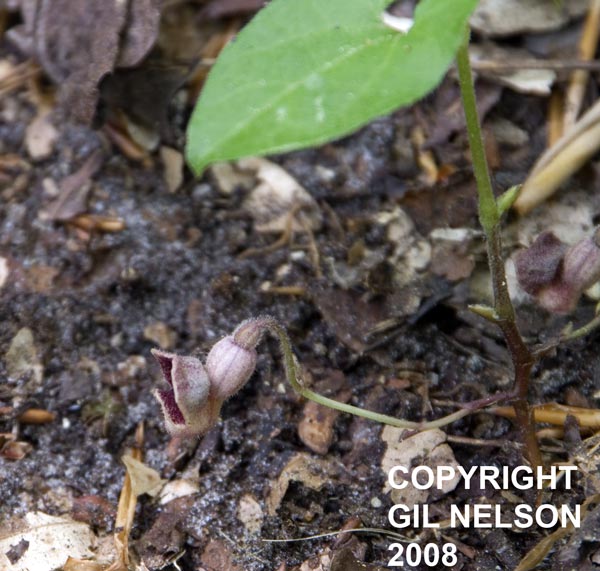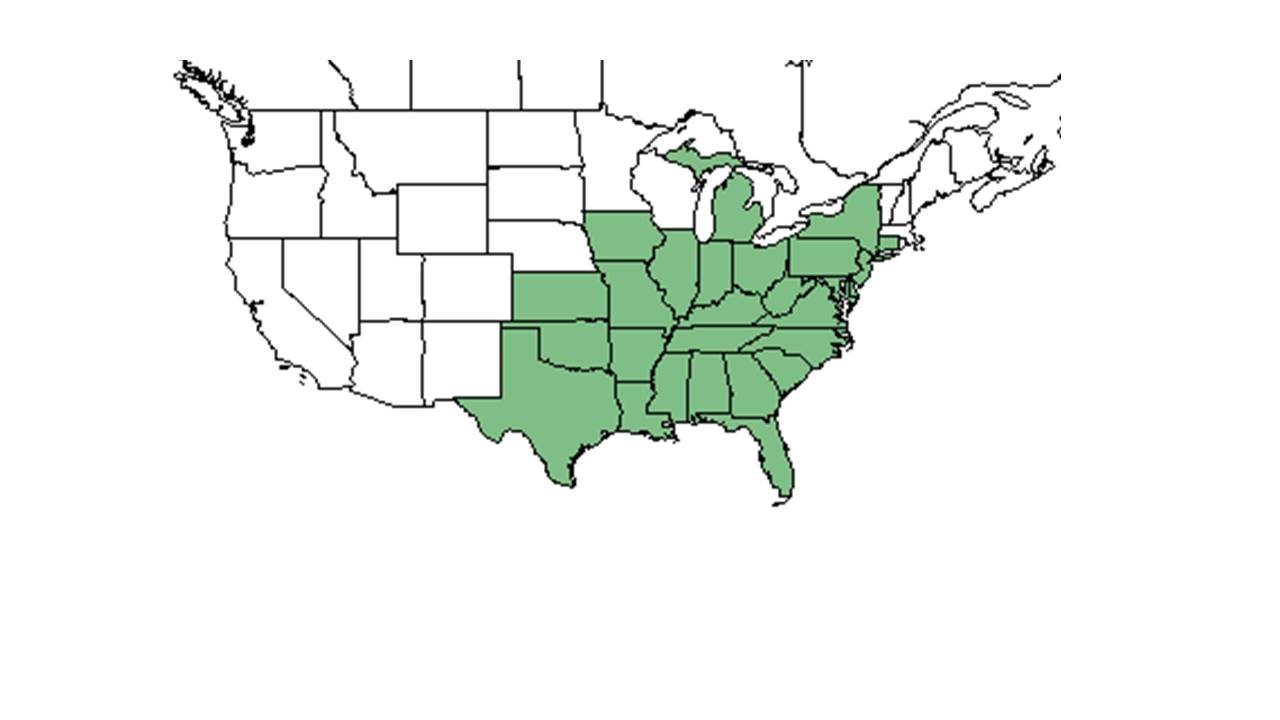Difference between revisions of "Endodeca serpentaria"
Krobertson (talk | contribs) |
(→Taxonomic notes) |
||
| Line 20: | Line 20: | ||
==Taxonomic notes== | ==Taxonomic notes== | ||
| − | Synonyms: ''Aristolochia serpentaria'' (L.); ''A. hastata'' Nuttall; ''A. serpentaria'' var. ''hastata'' (Nuttall) Duchartre; ''A. convolvulacea'' Small; ''Endodeca hastata'' (Nuttall) Rafinesque | + | Synonyms: ''Aristolochia serpentaria'' (L.); ''A. hastata'' Nuttall; ''A. serpentaria'' L. var. ''hastata'' (Nuttall) Duchartre; ''A. convolvulacea'' Small; ''Endodeca hastata'' (Nuttall) Rafinesque |
| + | |||
==Description== | ==Description== | ||
<!-- Basic life history facts such as annual/perrenial, monoecious/dioecious, root morphology, seed type, etc. --> | <!-- Basic life history facts such as annual/perrenial, monoecious/dioecious, root morphology, seed type, etc. --> | ||
Revision as of 18:31, 6 May 2019
| Endodeca serpentaria | |
|---|---|

| |
| Photo taken by Gil Nelson | |
| Scientific classification | |
| Kingdom: | Plantae |
| Division: | Magnoliophyta - Flowering plants |
| Class: | Magnoliopsida – Dicotyledons |
| Order: | Aristolochiales |
| Family: | Aristolochiaceae |
| Genus: | Endodeca |
| Species: | E. serpentaria |
| Binomial name | |
| Endodeca serpentaria L. | |

| |
| Natural range of Endodeca serpentaria from USDA NRCS Plants Database. | |
Common names: Turpentine-root, Virginia snakeroot, Serpent birthwort
Contents
Taxonomic notes
Synonyms: Aristolochia serpentaria (L.); A. hastata Nuttall; A. serpentaria L. var. hastata (Nuttall) Duchartre; A. convolvulacea Small; Endodeca hastata (Nuttall) Rafinesque
Description
A description of Endodeca serpentaria is provided in The Flora of North America. The variation of this species needs to be further studied.[1]
Distribution
It is found as north as Connecticut, west to Illinois, and south to central peninsular Florida, then west to Texas.[1]
Ecology
Habitat
This species grows in mesic woodlands, rich mixed woodlands along creeks, wooded floodplains, and hardwood slopes. It is found in floodplains or slopes in soils varying from dry to wet sandy loam. This species has also been spotted in disturbed areas such as fire breaks. It thrives in shaded environments as well.[2]
Phenology
It flowers from May to July.[1]
Conservation and management
Cultivation and restoration
Photo Gallery
References and notes
- ↑ 1.0 1.1 1.2 Weakley, Alan S. Flora of the Southern and Mid-Atlantic States: Working Draft of 21 May 2015. University of North Carolina Herbarium (NCU). PDF. 127.
- ↑ Florida State University Robert K. Godfrey Herbarium database. URL: http://herbarium.bio.fsu.edu. Last accessed: June 2014. Collectors: L. C. Anderson, R. R. Clinebell II, R. K. Godfrey, and M. Jenkins. States and Counties: Florida: Calhoun, Gadsden, Jackson, Lafayette, and Leon. Georgia: Thomas.